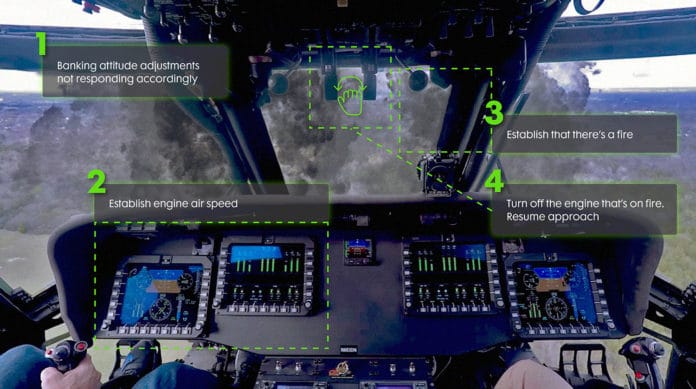The Defense Advanced Research Projects Agency (DARPA) has awarded Northrop Grumman and the University of Central Florida (UCF) a contract to develop a prototype artificial intelligence (AI) assistant. The prototype will be embedded in an augmented reality (AR) headset to help rotary pilots perform expected and unexpected tasks.
The contract value for the Perceptually-enabled Task Guidance (PTG) program was not disclosed. The team will develop an Operator and Context Adaptive Reasoning Intuitive Assistant (OCARINA) that will support UH-60 Blackhawk pilots, who fly with both visual and instrumented flight, which varies with the weather time of day and other environmental factors.
“The goal of this prototype is to broaden a pilot’s skillset,” said Erin Cherry, senior autonomy program manager, Northrop Grumman. “It will help teach new tasks, aid in the recognition and reduction of errors, improve task completion time, and most importantly, help to prevent catastrophic events.”
Rotorcraft aircrews face numerous demands, particularly when flying in close proximity to buildings, terrain, people, and from the threat of adversary RADAR systems. Today, simple warning systems are the most common means for aiding a rotorcraft aircrew, such as auditory alerts to increase altitude.
DARPA’s PTG program aims to develop AI technologies to help users perform complex mental and physical tasks. The goal is to provide users of PTG AI assistant with wearable sensors that allow the assistant to observe what the user perceives and know what the user knows. It will use advanced information processing and an augmented reality interface in the headset to provide feedback and guidance through speech and aligned graphics at the right place and time to augment the aircrew.
Using powerful, proven algorithm development and implementation processes, Northrop Grumman develops and integrates leading-edge AI solutions into large, complex, end-to-end mission systems that are essential to our national security.
